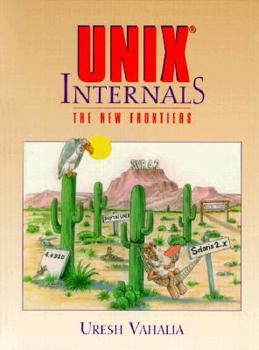Unix Internals: The New Frontiers
Customer Reviews
Rated 5 starsThe best operating systems book in existence
A certain small and select set of books can be found in any serious programmer's library. "UNIX Internals" is one of those books.I originally encountered "UNIX Internals" in my undergraduate operating systems class. At the time, I liked it, but I didn't really appreciate its full beauty until I re-read it with a few years of operating systems experience under my belt. I work as an operating systems programmer for a living,...
0Report
Rated 5 starsGreat reference
I found this book to be extremely helpful in studying for my OS PhD prelims. It really lays out the issues and presents solutions taken by SVR4, BSD, Mach, and Solaris in a clear fashion. Excellent detail. The Mach stuff is great, but it looks like it was almost cut and paste from the research papers. This book isnt for novices. I recommend using the BSD4.4 book as well. Both books dont look at Windows at all (for obvious...
0Report
Rated 5 starsWorth its weight in gold...
As someone whose occupation is providing support for developers on the UNIX OS, this book is worth it's weight in gold. It explains in sufficient detail all of the major features of a modern UNIX kernel, including kernel threads, user-space threads, signal generation and handling, scheduling, IPC, filesystems, etc. I've read just about every popular book printed on UNIX internals and this is my favorite. It reads easily...
0Report
Rated 5 starsReally deserves 5 stars!!!
If you want to know how the Unix kernel works, and doesn't work, you need this book. Published in 1996 about "The New Frontiers", most of the "new" ideas are in current (1999) production systems. Vahalia is an excellent writer. The book is well organized and clearly written. Covers Sys V, BSD, Mach kernels and design tradeoffs. Threads, multiprocessors, IPC, lightweight processes, etc, it's all here. Excellent ...
0Report
Rated 5 starsAn excellant book on Unix Intenal, advanced and updated
I am very surprised that this book is largely get overlooked by Unix society. I read this book for over 2 years, I'm still frequently revisit it. The beautities of the book are 1. The information is up-to-date, a lot of information is summarized from latest Usenix proceedings 2. Topics involved are moderate to advanced, assuming you have enough basic knowledge on Unix Internals, such as those from BACH's book. So it focused...
0Report




















